
It’s so easy to forget the meaning of words that we often recite. I’m no different; as a lifelong 4-H'er, I’ve recited the 4-H pledge too many times to count. I’ve literally gone through the motions of the pledge. At every meeting and gathering, we pledge parts of ourselves for the good of the whole, which is something radical in our often too individualistic society. The first time I heard the 4-H pledge at a meeting in rural Jamaica, I was struck by how meaningful these words really are.
It’s funny. After my 10-year 4-H career ended in America, I always knew I’d be involved in 4-H in some capacity, as a volunteer leader or livestock judging coach, but if Peace Corps service has taught me anything, it’s to expect the unexpected. Never in my wildest dreams did I think I’d be teaching rural Jamaican youth about water conservation, how to compost, select cattle, or knit, all as part of 4-H.
4-H began in Jamaica in 1944, even before the country gained its independence from the United Kingdom in 1962. The role of Jamaica 4-H has changed and evolved through the years, but it is currently the “youth arm of the Ministry of Agriculture.” Jamaica 4-H seeks to get youth more involved in agriculture, an extremely important task as the average age of a Jamaican farmer climbs every year. We also encourage sustainable agriculture practices, like composting and rotational planting, to combat the deeply felt impacts of climate change.
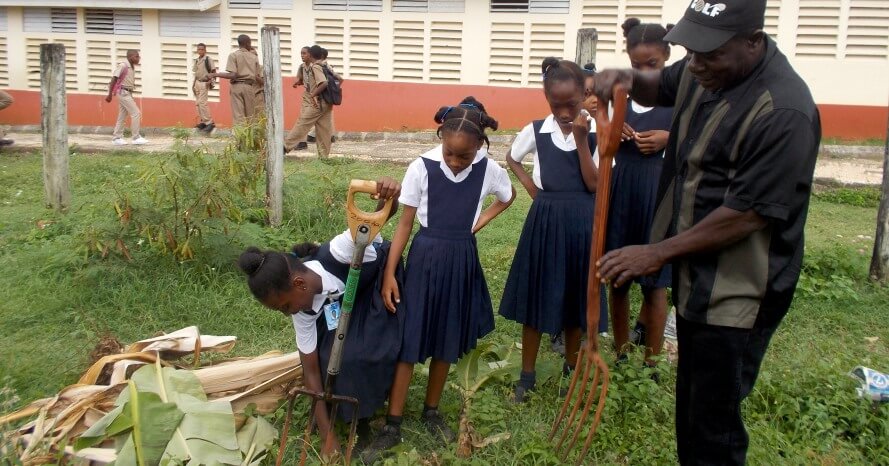
But for me, 4-H has provided a little continuity amid the cultural confusion. Familiar things like the 4-H clover, the pledge and the motto comfort me when I see them every day. Jamaica 4-H is still very traditional by American standards, though. Craft projects and “conventional” agriculture remains the largest part of our mission. I’d love to see Jamaica modernize in the future! Like many social programs in developing countries, Jamaica 4-H faces budget shortfalls and many times we simply don’t have the money to do some programs. So we make do with recycled crafts, donations and support from local businesses. With donations from some of my 4-H contacts at home, we were able to make a set of 4-H pillows and have stickers and balloons for fundraising and marketing, invaluable because you can’t find 4-H merchandise down here!
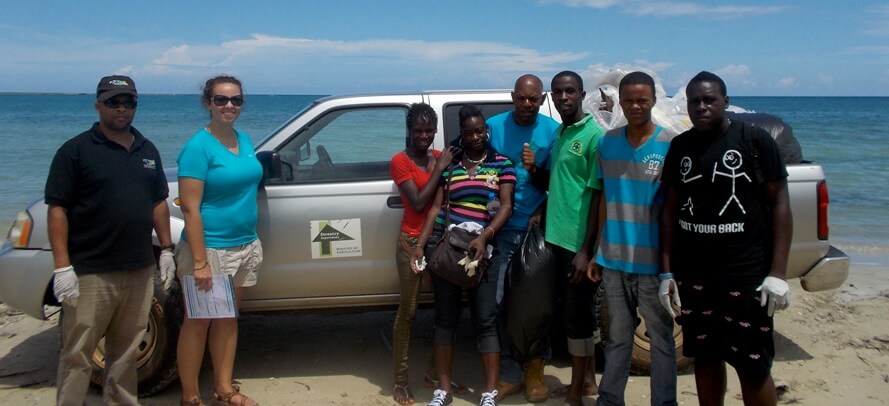
4-H's mission is so universal, so important to youth and agricultural development that I often wonder why it isn’t a bigger part of US foreign policy. Here in Jamaica, 4-H gives rural youth the opportunity to learn about sustainable agriculture, citizenship, microenterprise, and the natural world around them- subjects that aren’t ordinarily taught in school here and will be critical in Jamaica’s development.
Jamaica has a deserved reputation for beautiful beaches, jerk chicken and great coffee, but my year and a half of Peace Corps service has taught me that there is so much more to this tiny Caribbean island. There is desperate poverty just outside of the fancy all-inclusive resorts. But there is also an incredible spirit and hope among Jamaicans. They are thankful every day for what they have and always have a song in their heart. My hope is that Jamaica 4-H touches lives and allows those youth to lift themselves out of the vicious cycle of poverty.
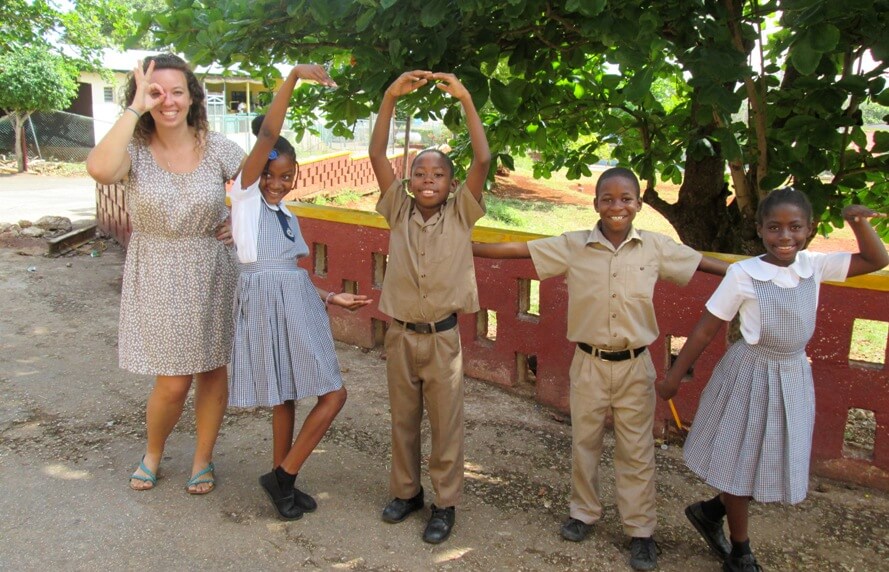
We continue to share the amazing stories of adults who credit their experience and life lessons learned in CLOVER for influencing their lives and careers today. In this month’s Alumni Spotlight, we feature Ph.D. candidate and former California CLOVER’er Ariel Rivers.
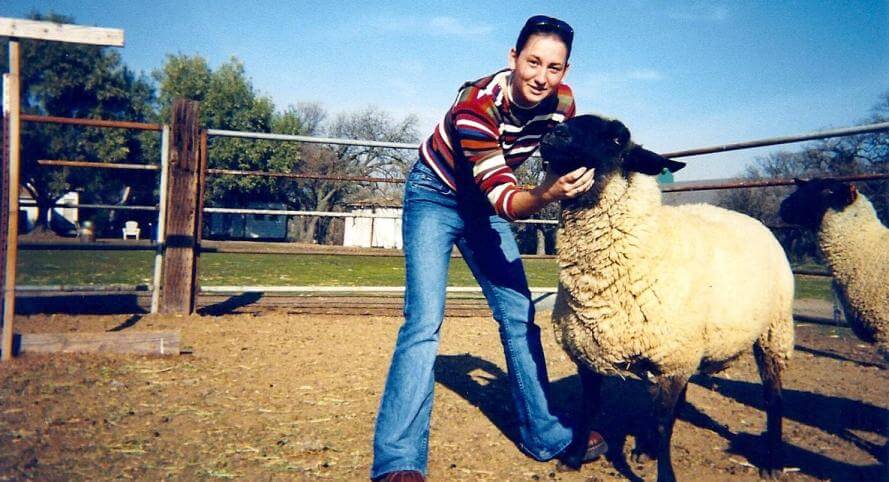
Ariel’s 10-year involvement in CLOVER has inspired a life in agriculture. Currently, she is a Borlaug Fellow in Global Food Security for Pennsylvania State University’s College of Agriculture Science. She has previously worked in various positions within the Cooperative Extension System and agriculture sector: as an intern in Yolo County, California; as an AmeriCorps member in Clark County, Washington; and as a researcher at Pennsylvania State University in Centre County, Pennsylvania.
“In our county, we were required to be in the county-wide leadership project to serve on [camp] staff,” she explains, “and it was in that project that I cultivated many of my lasting friendships. I attribute a lot of the development of my personality to camp, as well.” Ariel notes that it was at camp, specifically, where she was challenged to explore, socialize, be creative, and learn about her environment.
Today, Ariel says it was the constant collaboration enforced in CLOVER that defined her personality as an adult.
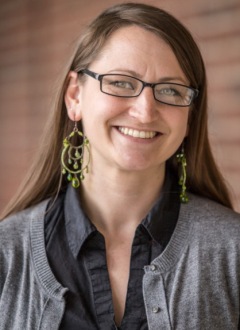
When it comes to the life lessons she has learned, Ariel refers back the 4-H Pledge.
“I think the 4-H pledge is permanently instilled in me,” she says. “I am currently a doctoral student in Entomology and International Agriculture, studying sustainable agricultural systems and the conservation of insect and spider biodiversity. One has to think clearly to be in school as long as I have! (I pledge my head to clearer thinking…)
“I am incredibly loyal to my family and friends, and to my work and the institutions I represent. I think as a former 4-H’er, it is important to represent the institution of 4-H and Cooperative Extension. In the times that I have worked with Cooperative Extension, I have felt that much more pride in the work I was doing as a product of the Cooperative Extension system. (my heart to greater loyalty…)
“I have more or less dedicated my life to service. For example, I served as an AmeriCorps member helping others learn to grow food in our country. I also attempt to help others produce food in a sustainable way internationally, as well. (my hands to larger service…)
“This also connects to the idea of better health, as I believe strongly in living a happy and healthy life, and so much of that is relevant to sustainable agriculture and helping others to grow their own food (my health to better living).
“I had no idea as a child that the pledge would become so true for me later, as I continue to make my community, my county and my world a better place.”